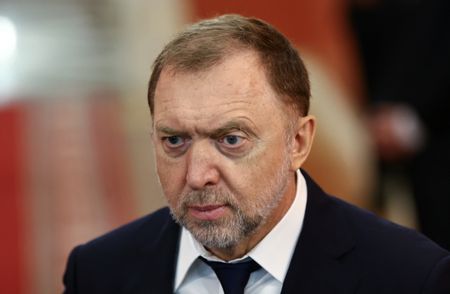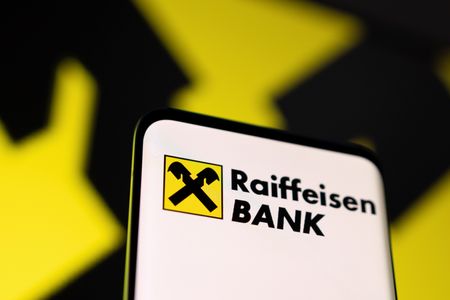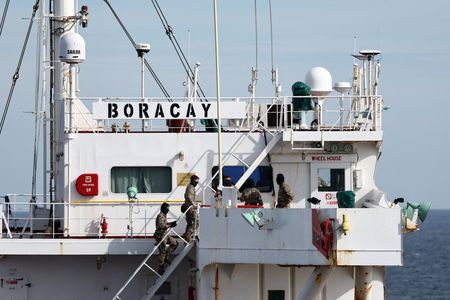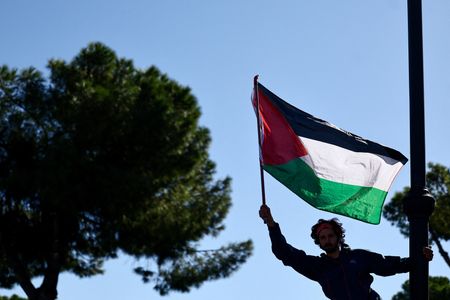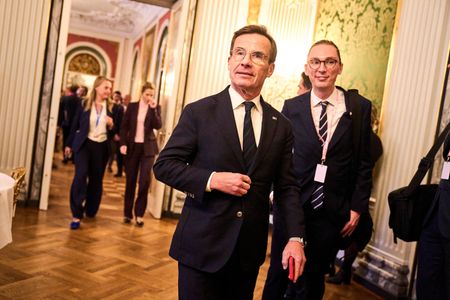BERLIN (Reuters) -The European Union is considering unfreezing assets linked to Russian oligarch Oleg Deripaska so Austria’s Raiffeisen Bank International can be compensated for damages it was ordered to pay in Russia, EU diplomats said.
They said Austria insisted on putting such a provision into the 19th package of sanctions against Moscow now under discussion.
A Russian court fined Raiffeisen about 2 billion euros ($2.3 billion) following a lawsuit brought by a company Deripaska previously owned. It also said the bank could recover that fine by taking over its equivalent in shares in Austrian construction company Strabag, previously part-owned by Deripaska, something Raiffeisen has so far been unable to do, because they are immobilised under EU sanctions.
The story was first reported by the Financial Times.
Shares in Raiffeisen were up 5.4% by 0735 GMT.
Several EU governments are highly critical of the Austrian proposal which will be discussed at a meeting of EU members’ ambassadors in Brussels on Friday. Diplomats said it was not clear if a decision would be reached on Friday or only next week.
“It would not be a good move, because Raiffeisen was to leave Russia but, thanks to German and Austrian backing, it did not. It stayed because it likes Russian money,” one diplomat said. “So the issue is quite simple – if a company likes Russian roubles, then it is itself asking for trouble.”
Raiffeisen declined to comment. The European Commission did not immediately respond to a request for comment.
CONCERNS ABOUT BOLSTERING RUSSIAN COURTS
Diplomats worry that by allowing what effectively is an asset swap, the EU would legitimise Russian courts, which are retaliating against EU sanctions by ordering the confiscation of Western assets, and could encourage other oligarchs to also take this approach.
“If we go down this path, we could be unfreezing quite a lot of Russian assets and I don’t think this is the goal,” the EU diplomat said.
The Strabag shares have remained frozen under EU sanctions since 2022, when Deripaska was accused of supporting Russia’s military-industrial complex following the invasion of Ukraine.
Reuters reported on Wednesday that Raiffeisen, which is the largest Western lender operating in Russia and serves as a key financial bridge to the West, had failed in another attempt to sell a stake in its Russian business.
Russian officials opposed the sale, fearing that, if it went to a domestic buyer, that might trigger further sanctions against the lender, according to a source.
($1 = 0.8531 euros)
(Reporting by Jan Strupczewski in Brussels, Mrinmay Dey in Bengaluru and Kirsti Knolle in Berlin; Additional reporting by Makini Brice; Editing by Edwina Gibbs and Tomasz Janowski)

